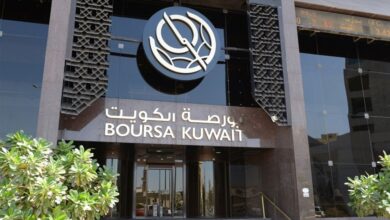Kuwait faces looming power shortage

Kuwait is facing a looming power shortage that could last for several years, until at least 2027. This could threaten the country’s energy security and lead to economic losses, particularly in the oil and industrial sectors.
Studies and statistics on power consumption in the country indicate that the power deficit will increase in the current and upcoming years. According to estimates, the power deficit in the summer of 2024 will reach about 700 megawatts, while in the summer of 2025 it will exceed 2,000 megawatts, rising to 2,500 megawatts in the summer of 2026. This represents an annual increase in the deficit of about 5-6%.
The aging of the water and power production plants poses a threat to the availability of electricity and water, especially during peak times in the summer, when breakdowns and production stoppages are frequent. It is worth noting that no major power plant has been built in Kuwait for about 15 years.
Solutions
Several committees have been formed in the Ministry of Electricity and Water (MEW) to find solutions to power shortage. These committees have unfortunately failed to develop an executive action plan to avoid power shortage through sustainable solutions.
The impractical plan to shut off electricity to factories in the summer, including the oil industry, is not feasible and indicates a lack of sound planning.
GCC grid connection
Some believe that the GCC grid connection is the solution for the summer of 2024 and the coming years. However, this is not entirely accurate. The GCC grid connection provides limited energy and is subject to the availability of energy during peak times from the Gulf countries. It is worth noting that the peak consumption time in all Gulf countries is the same, so the availability of energy through the GCC grid connection is not guaranteed. In addition, buying energy from the GCC grid is expensive for several reasons.
The Kuwait Authority for Partnership Projects (KAPP) has not contributed effectively to meeting the increasing demand for electricity and water. Since its establishment, it has only implemented one plant (the first northern Al-Zour) with the participation of the private sector. It also planned to implement the Al-Khiran plant in 2014, but that was not actioned.
Quick and sound decision making is required to solve the electricity crisis by hiring international consultants.
International Developers
The Ministry has started studying solutions to provide energy through international developers, but this is being met with resistance from some quarters, despite the fact that the Cabinet approved the purchase of energy from international developers and instructed the MEW to find appropriate solutions to solve the electricity crisis and take necessary action. However, in the absence of a robust decision, quick and sustainable solutions have been absent.
Practical solutions
Many international investors have submitted offers to build and operate power and water production plants and sell them to the state at a reasonable price, lower than the current production cost, but these solutions are still pending decisions.










